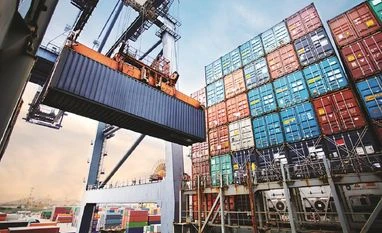After nearly finalising a pact, the proposed free-trade agreement (FTA) between India and Oman has hit a speed breaker, amid differences over market access for petrochemical products, people aware of the matter said.
The main area of contention has been the pressure on Delhi to give greater market access for polyethylene and polypropylene-intermediates used to manufacture plastics, medical devices, electronics and automobile components. These petrochemical products attract 7.5 per cent import duty in India.
Both sides had almost concluded the trade agreement and the process of legal scrubbing of text of the proposed FTA had also started in February.
However, mid-March onwards India shifted its focus towards the Lok Sabha polls that concluded on June 1.
Thereafter, the idea was to sign the agreement as soon as the new government assumed charge, one of the persons cited above told Business Standard.
However, negotiations had to be restarted after the elections amid the domestic industry’s — including public and private — concerns over complete market access to petrochemical products.
West Asian nations have started shifting their focus towards value-added products due to COP28's decision to transition away from fossil fuels. Since India is a large market, with focus on local manufacturing, the industry is worried that a complete market access may hurt domestic investments made by Indian private and public sector oil companies. Besides, it would set a precedent for greater market access for other Gulf nations.
Another challenge is that under the India-United Arab Emirates (UAE) trade agreement, New Delhi had agreed to halve the 7.5 per cent import duty on petrochemicals in a phased manner, coupled with a tariff rate quota or a cap on the volume of imports.
The commerce department did not respond to a query sent by Business Standard.
A comprehensive trade deal with the West Asian nation is a part of India’s keenness to improve its relations with West Asian nations, with Oman being India’s strategic partner, with trade links of about 5,000 years.
Oman is also a part of the six-member Gulf Cooperation Council (GCC) comprising Bahrain, Kuwait, Oman, Qatar, Saudi Arabia and UAE. Among the GCC nations, India already has a trade agreement with the UAE, signed in February 2022.
The formal commencement of the negotiations started on November 20.
The negotiations on the text of most chapters were concluded by India and Oman by January. Government officials had earlier said that the India-UAE agreement was expected to be replicated in the case of Oman, making it easier for the two countries to negotiate.
Oman is India’s 30th-largest trading partner, but the third-largest export destination among GCC countries, after UAE and Saudi Arabia. Bilateral trade between both the countries stood at $8.9 billion in the financial year 2023-24.
Unlock 30+ premium stories daily hand-picked by our editors, across devices on browser and app.
Pick your 5 favourite companies, get a daily email with all news updates on them.
Full access to our intuitive epaper - clip, save, share articles from any device; newspaper archives from 2006.
Preferential invites to Business Standard events.
Curated newsletters on markets, personal finance, policy & politics, start-ups, technology, and more.
)